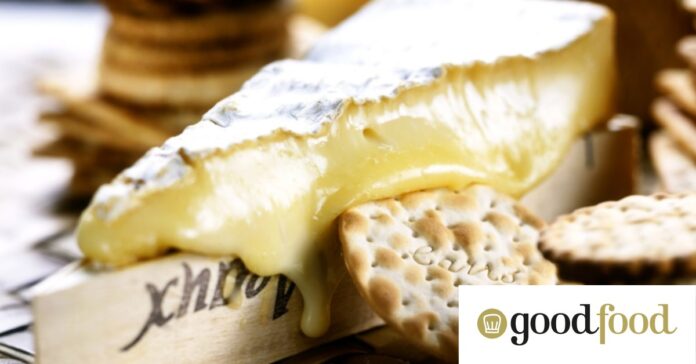Experts warn brie and camembert may fall victim to their own success.

French scientists have alarmed cheese lovers worldwide with an announcement that camembert cheese is on the verge of extinction.
A team at the French Centre for Scientific Research has pointed the finger at human intervention and mass industrialisation of the cheese industry, which has put the strain of microscopic fungus used to make brie and camembert on track to die out.

“We’ve domesticated these invisible organisms just as we did with dogs,” says French evolutionary biologist Jeanne Ropars, whose team sequenced the fungus’ genome.
“But every time an organism is subjected to overly drastic selection, their genetic diversity is greatly reduced.”
The organism in question is a carefully selected, aggressive, and fast-growing albino mutation of a penicillin mould called Penicillium camemberti, isolated in a French lab and commercialised.
It produces a pure white fluffy bloom that covers the cheeses and helps break down the fat and protein inside to a delicious, gooey texture.

Victorian-based French cheese maker Ivan Larcher explains that before World War II, brie and camembert were not white but a variety of colours.
“There is a famous painting of French brie from 1888,” he says. “The cheese is blue and orange. Back then these cheeses were made from a fungus called Penicillium biforme, from this mutated the white mould fungi,” he says.
“Before then, cheesemakers thought white mould was a contaminant. Today we are brainwashed to expect pure white brie and camembert.”
Today, the albino strain of P. camemberti lacks the genetic diversity to fend off diseases, should they come along, can no longer reproduce sexually, is unable to cross-breed naturally − which could instil genetic diversity − and can only be cloned in laboratories.
The global cheese industry is now facing a shortage of this essential mould.

This lack of biodiversity in the cheese world is also affecting the rich and aromatic French blue cheese roquefort.
To produce vast quantities of consistently flavoursome, appetising, and safe blue cheese, manufacturers selected just a few strains of Penicillium roqueforti, a naturally occurring fungus, and cloned it in laboratories.
As a consequence, the fungi have accumulated multiple damaging mutations and are now in danger of being infertile.
Some argue that genetic modification could help get the industry out of the conundrum. French scientist Tatiana Giraud argues that gene editing could allow the cheese fungi to breed again.
“The only way to compensate for detrimental mutations is to introduce new genes,” she says.
“But genome editing is another form of selection. What we need today is the diversity provided by sexual reproduction between individuals with different genomes.”
Larcher however, sees the long-term solution in returning to traditional methods of cheesemaking.
“The industry is moving towards using a variety of more traditional and indigenous cultures that have not been selected in the lab,” he says.
“The future lies in more rustic cheese made with more naturally occurring yeasts, moulds and bacteria. The greater the biodiversity, the fewer problems in the future.”


